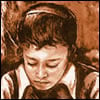For Nancy Popick, Monday, Aug. 20, "was the most unstressful first day we ever had."
It was the day Jason, her seven-year-old son with special needs, began studying at the new South Florida Jewish Academy.
He was one of 15 children with special needs entering the building formerly occupied by the South Florida Academy of Learning, which Jason – who has auditory processing disorder – had attended.
Chabad-Lubavitch of Coconut Creek & West Pompano Beach purchased the school and building, with the help of philanthropist Morris Tabacinic and family, of Bal Harbour, Fla., in April.
"We didn't have to worry: 'Is he going to learn today?'" said Popick, of Jason.
She knew he would.
According to Baila Gansburg, the school's director, the opportunity to continue the tradition of the old school and infuse it with the rigors of a Jewish day-school curriculum, all while providing a challenging yet fun learning environment for children with learning disabilities, just couldn't be passed up.
"We did not plan on opening a school like this," said Gansburg, co-director along with her husband Rabbi Yossi Gansburg of the Chabad House that purchased the 5,000-square-foot facility. The original plan called for operating a Jewish preschool for about 75 students.
Parents from the old school, though, had nowhere else to turn.
"They asked up to keep the door open for this," said Gansburg. "We have kids from Boynton Beach and North Miami. Some are traveling an hour to come here."
The Popicks travel a half-hour each way from their home in Coral Springs to the school in Coconut Creek. The mother said that had Chabad not taken over the school's operations, her only alternative was to "probably put [Jason] back in public school and pay for one-on-one tutoring."
Barbara Lichtenstein, of Boca Raton, whose son, Michael, 8, copes with a development disorder and also attended the former school, was equally ecstatic with Chabad taking over.
"We were going to keep our son home," she said. "There aren't too many places to go if they have a need for a little extra help. We were thrilled when they decided to keep the school going."
Public school, explained Popick, just didn't do it for her Jason.
"They didn't understand him well," she lamented. "There was no one-on-one teaching environment, which he has to have with socially appropriate peers."
Lichtenstein concurred.
"These students are of a very high-level of functioning with a lot of potential," she said, "so you don't want to put them in a class with children of more-severe difficulties.
"Yet they are going to need more help than in any regular classroom if they go to public school. They need more individualized attention."
Emphasizing the Individual

South Florida Jewish Academy employs a multiage education model that splits children into groups corresponding to Kindergarten through Grade 1, Grade 1 through Grade 3, Grade 4 through Grade 6, and Grade 6 through Grade 8. Educators hail such a system as inherently flexible; by challenging the commonly-held belief that students of the same age possess the same level of cognitive ability, according to the school's Web site, sfal.org, multiage classroom structures "emphasize achievement for every student, thereby enhancing academic, social and emotional growth."
The academy is accredited by the Florida Council of Independent Schools, but because of new ownership will have to be reevaluated after three years.
Skardon Bliss, executive director of the Tampa, Fla.-based council, confirmed that the reaccreditation process has already begun, and that the staff, including Gansburg, two teachers certified in special education, and two teacher aides, will attend professional development programs.
The school's annual tuition is $18,000, although some parents, like Popick, are benefiting from state-subsidized grants.
Gansburg said that children with Asperger's syndrome, autism, attention deficit hyperactivity disorder, dyslexia, perceptual impairment – even those who can't cope in a large classroom setting – will all do well at the school.
"The curriculum, secular and Hebrew, is based on the levels that the children can learn," stated Gansburg, a former teacher. "It is all individualized" and includes supplemental visits by occupational and speech therapists, and physical education.
Both Popick and Lichtenstein were sold on the school by Gansburg's commitment and enthusiasm.
After attending Gansburg's presentation earlier this year, in which she showed a video drawing analogies between the wondrous variety of animal life and the individuality of children, Popick was impressed.
"You got the sense how well she understands the kids and how they learn," she said.
"Baila is such a loving person," said Lichtenstein. "You can tell it comes from the heart, [especially] to make allowances for the kids to learn about Judaism. I'm doubly excited because Michael will get a Jewish day school education."
Rabbi Yossi Gansburg, the school director's husband and co-director with her of the Chabad House, is providing the Jewish curriculum component.
"Michael loves it," said Lichtenstein. "He knew a couple of the children who are returning, and met new children."
News of the school's opening is being spread by word of mouth, stories in the local media and brochures strategically placed in doctors' and therapists' offices.
"We only announced on June 8 that we were going to be doing this and we are getting calls every day," exclaimed Baila Gansburg. "We had intervention from above."







Join the Discussion